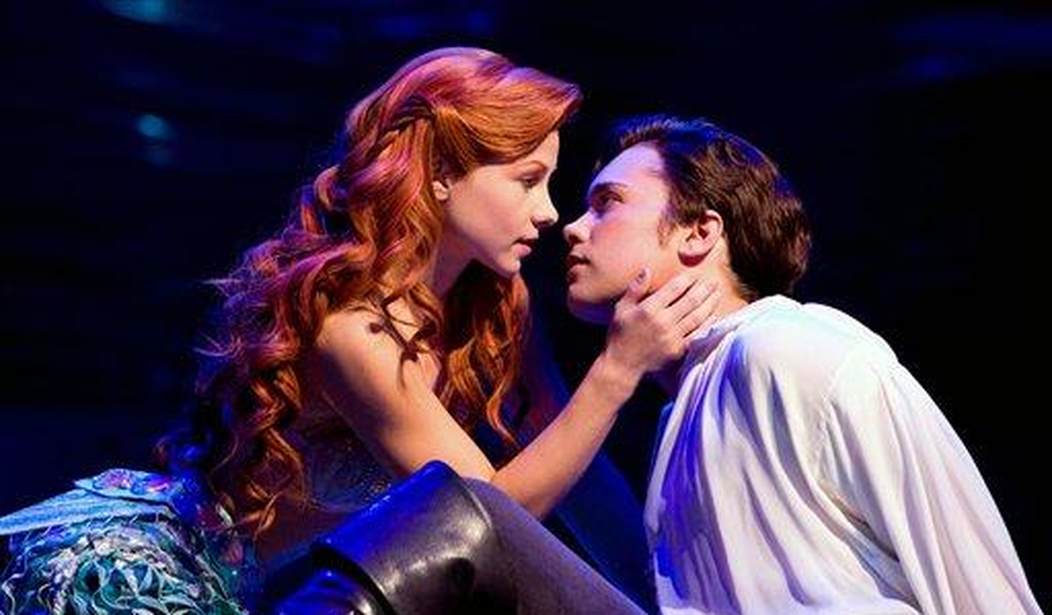The narrative that Disney is a grooming hub was humorous, but I don’t believe it. I know some feel otherwise, but I’m not sold that the iconic castle is a bastion of debauchery. Then again, true or not, I can see how this narrative stays alive, and it’s not because conservatives are barking about it. It’s the Left overall and their penchant for wanting to sexualize everything. Was this New York Times review of the Little Mermaid reboot meant as a parody? I’m certain that normal parents who don’t want child services placing them under investigation weren’t looking for “kink” in this feature. Yeah, apparently, the lack of BDSM material is what miffed this writer in his review (via NYT):
Here's the @nytimes complaining there's not enough "KINK" in a children's musical from Disney. pic.twitter.com/ZQc2y26LJd
— Larry O'Connor (@LarryOConnor) May 28, 2023
New York Times critic says ‘The Little Mermaid’ is missing joy, fun, and … kink https://t.co/Mqj6iWd2oJ
— Twitchy Team (@TwitchyTeam) May 27, 2023
The new, live-action “The Little Mermaid” is everything nobody should want in a movie: dutiful and defensive, yet desperate for approval. It reeks of obligation and noble intentions. Joy, fun, mystery, risk, flavor, kink — they’re missing. The movie is saying, “We tried!” Tried not to offend, appall, challenge, imagine. A crab croons, a gull raps, a sea witch swells to Stay Puft proportions: This is not supposed to be a serious event. But it feels made in anticipation of being taken too seriously. Now, you can’t even laugh at it.
The story comes from Hans Christian Andersen, and when Disney made a cartoon musical of it in 1989, the tale’s tragedy and existential wonder got swapped for Disney Princess Syndrome, wherein one subjugation is replaced with another, an even exchange redrawn as liberating love. But the people who drew it had a ball with the hooey.
In both movies, the mermaid Ariel wants out of her widowed father’s underwater kingdom and into the arms of the earthbound merchant prince whom she rescues in a shipwreck. Her father forbids, but that sea-witch, Ursula, fulfills Ariel’s wish, giving her three days to procure a kiss from that prince and remain human or spend the rest of her life enslaved to Ursula. Somehow mirth and music ensue. In the original, that’s thanks mostly to Ariel’s talking Caribbean crab guardian, Sebastian, and her Noo Yawky dingbat sea gull pal, Scuttle.
[…]
It’s really a misery to notice these things. A 9-year-old wouldn’t. But one reason we have this remake is that former 9-year-olds, raised on and besotted with these original Disney movies, grew up and had questions. In that sense, “The Little Mermaid” is more a moral redress than a work of true inspiration. Which isn’t to say there’s nothing inspired about it. In fact, the best sequence in the movie combines these ambitions of so-called inclusion with thornier American musical traditions. It’s the moment when Scuttle reveals that Eric’s about to marry Ursula.
The song that breaks this news to Ariel and Sebastian is a rap called “The Scuttlebutt” with lyrics by Lin-Manuel Miranda. And Awkwafina, who does Scuttle’s voice, performs most of it while Bailey looks on in what I’m going to call anguish. Here’s an Asian American performer whose shtick is a kind of Black impersonation, pretending to be a computer-generated bird, rhythm-rapping with a Black American man pretending to be a Caribbean crab. It’s the sort of mind-melting mess that feels honest and utterly free in its messiness, even as the mess douses a conveniently speechless Black woman.
Watching it, you realize why the rest of the movie plays it so safe. Because fun is some risky business. This is a witty, complex, exuberant, breathless, deeply American number that’s also the movie’s one moment of unbridled, unabashed delight. And I can’t wait to see how Disney’s going to apologize for it in 34 years.
Recommended
The New York Times in 2013: “Bondage, Domination and Kink Sex Communities Step Into View”
— Steve Guest (@SteveGuest) May 28, 2023
The New York Times a decade later complains that there isn’t enough “kink” in a Disney children’s movie. pic.twitter.com/vmlpe7vnlU
It’s not a glowing review, and I like how the writer admits that while this play-it-safe version of the classic won’t entertain adults of the liberal persuasion with a lead actress who so happens to be black, nine-year-old kids probably wouldn’t care. That’s the point: it’s a kids’ movie. Parents don’t care about the academic exercises the piece expounds upon for why this reboot disappoints the woke agenda.
Maybe using the word “kink” was meant to express the lack of supposed risk in the reboot, but what a poor word choice. Also, no—Flounder will never and should never be portrayed wearing a gimp mask.

























Join the conversation as a VIP Member